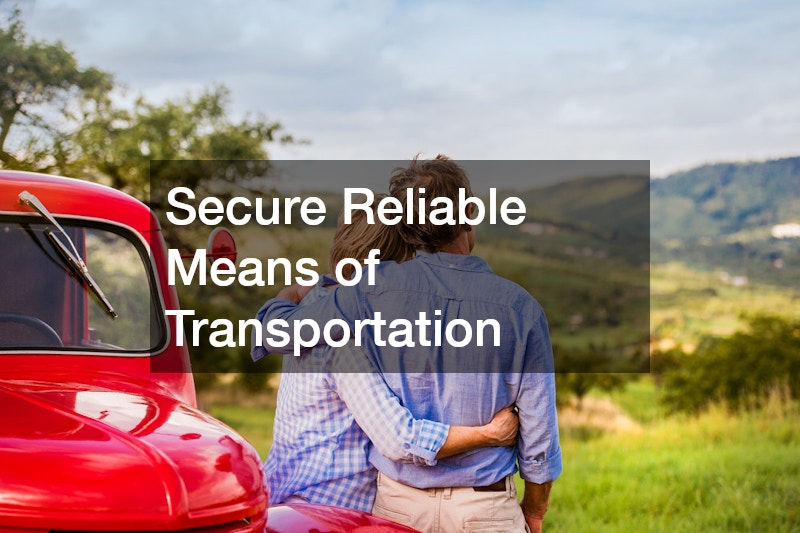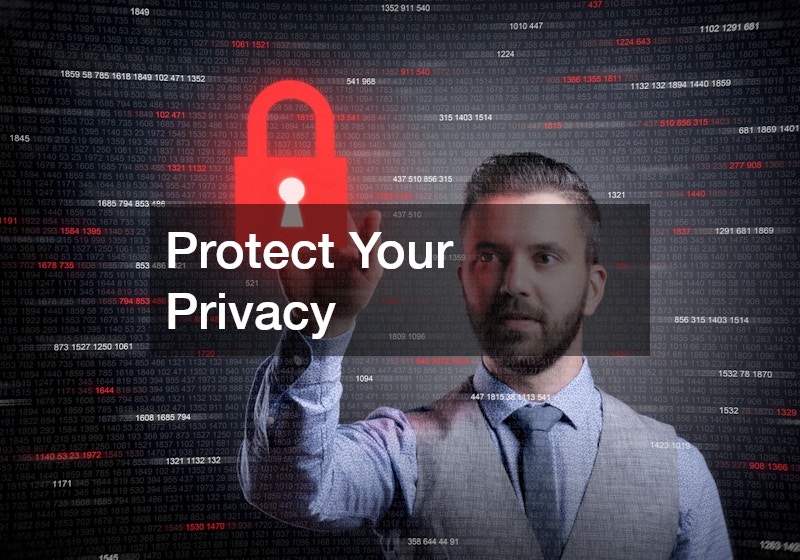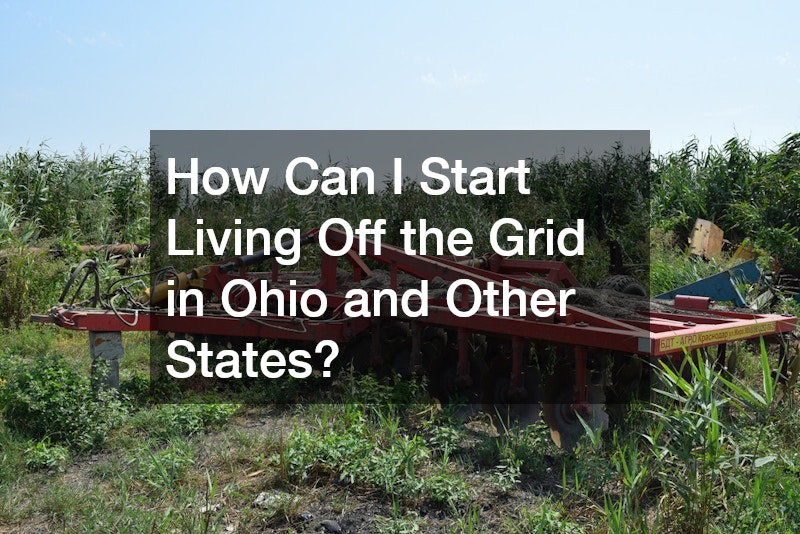
With the increasing interest in sustainable living and self-sufficiency, many are considering the advantages of living off the grid in Ohio and many other states, including those that offer a unique blend of rural charm and accessibility to major resources for those with an off-grid lifestyle. This lifestyle offers numerous benefits such as reduced utility bills, increased self-sufficiency, and a smaller carbon footprint. However, making the decision to live off the grid comes with its own set of challenges and considerations. This guide aims to provide an in-depth look at the necessary steps, considerations, and resources required for successfully living off the grid in Ohio and other areas, ensuring that your journey is as seamless as possible.
Establish a Power System
One of the first steps to living off the grid is to establish a reliable power system. Depending on your location and energy needs, generators can play a crucial role in ensuring you have a dependable source of electricity. While natural resources such as wind and solar power are viable, having a residential generator can provide a necessary backup during periods of extensive cloud cover or low wind.
Investing in a combination of renewable energy sources along with generators offers a balanced approach to maintaining a consistent energy supply. There are various types of generators available, each with unique advantages that can satisfy varying energy requirements—from small-scale portable units to larger stationary residential generators. It’s essential to evaluate your energy consumption patterns to ensure that your chosen system meets your demands efficiently.
Additionally, living off the grid means preparing for unexpected situations where power demand might exceed supply. This is where having a generator, especially residential generators, becomes invaluable. Not only do they serve as a critical backup, but they also provide peace of mind, knowing that your energy needs will be met, come what may.
Inform Your Family
When planning for living off the grid, it’s essential to inform your family, especially when you have infants. Off-grid living requires adjustments in lifestyle, which can be challenging if family members are unprepared or unaware. The needs of infants, such as temperature control, healthcare access, and hygiene, need careful consideration to ensure their well-being and comfort.
Communicating with family members about the changes and responsibilities that come with off-grid living is crucial. It’s important to highlight the benefits, like the opportunity for a more connected family life and reduced environmental impact. This way, each family member understands their role and the collective family goals, making the transition smoother and more coordinated.
Practical planning for infants should include securing reliable supply chains for essential goods and backup plans for healthcare situations. As the primary caregivers, parents must remain vigilant about family needs and ensure that the resources required for comfortable off-grid living are readily available.
Secure Reliable Means of Transportation

A reliable means of transportation is vital when living off the grid in Ohio or another state, especially in rural areas where public transport options may be limited. One innovative solution is the use of electric bicycles (e-bikes), which are available at various ebike shops throughout the state. E-bikes offer an eco-friendly and cost-effective means of transportation, reducing dependence on fossil fuels.
Ebike shops can provide insights into the best models suited for rural and off-grid conditions. These shops often have a variety of options that cater to different terrains, distances, and battery life, helping you select a model that aligns with your specific needs. E-bikes also allow for easy access to nearby towns and communities—vitally important for those who may need to travel for supplies or emergencies.
In addition to e-bikes, investing in a reliable vehicle is also crucial. Maintain your vehicle according to the terrain you inhabit, ensuring it can handle off-road conditions if necessary. This dual-transportation strategy ensures that you can remain mobile and responsive to any situation that may arise during your time living off the grid.
Invest In the Right Property
Selecting the right property is arguably one of the most critical aspects of living off the grid. A property should offer accessibility to natural resources such as water, fertile land, and sunlight. Furthermore, consider investing in essential infrastructure, such as a porta potty, to ensure sanitation needs are met efficiently and environmentally.
Even though off-grid living implies a degree of isolation, proximity to essential services should not be overlooked. Being within a practical distance from grocery stores, healthcare services, and educational institutions can greatly enhance the quality of life without compromising off-grid principles. These factors make a significant difference in sustainability and livability, especially in a diverse landscape.
Beyond infrastructure, assess the property’s potential for expansion and adaptation to future needs. By forecasting the potential growth of your household or technological enhancements, you can ensure that your off-grid home evolves alongside your lifestyle, maintaining comfort and self-sufficiency.
Ensure You Have Necessary Backups
Ensuring you have necessary backups is vital when embarking on the journey of living off the grid in Ohio or another state. This includes backup systems for electricity, heating, and food storage. Having a residential generator as a contingency can significantly alleviate stress during unforeseen power shortages or extreme weather conditions.
A well-thought-out backup plan must also account for heating, especially considering cold winters. Investing in alternative heating solutions like wood stoves or efficient propane heaters can safeguard comfort during colder months. Likewise, storing non-perishable food items and having a secondary cooking method, such as a portable gas stove, is wise.
Preparedness goes beyond infrastructure; it encompasses family readiness to adapt to different scenarios. Spur the family into collective responsibility by assigning roles and tasks in case of any contingency, ensuring that every family member is capable of stepping up when needed.
Research Local Laws

Before committing to living off the grid in Ohio or another area, thoroughly research local laws and regulations. This includes zoning laws, building codes, and utilities-related statutes that may impact your lifestyle. Familiarity with home rewiring regulations is particularly important, as proper compliance ensures safety and adheres to local building standards.
Laws regarding self-sufficiency can vary from one county to the next, so understanding these nuances is beneficial. Engage with local authorities or community organizations that specialize in off-grid living to gain insights about necessary permits and compliance requirements. Seeking expert advice can reduce potential legal challenges and increase success in living off-grid.
Additionally, being aware of legal implications of alternative systems like sewage management and power generation can prevent inadvertently violating local statutes. By being proactive, you can ensure a legally sound and coherent transition to off-grid living without undue interruptions.
Save Money for Emergencies
Living off the grid in Ohio and other states can offer numerous financial savings; however, saving money for emergencies remains critical. Emergency funds act as a safety net for unexpected expenditures like repairs, medical emergencies, or sudden supply shortages. Proactive financial planning ensures stability and continuity, preserving the off-grid lifestyle.
Establishing a dedicated savings account for emergencies can offer peace of mind. Contributions from routine savings, reduced utility bills, or even selling unused items like overhead doors can bolster this fund. Having a financial cushion allows you to handle unforeseen expenses without compromising your independent living arrangements.
Given the unpredictable nature of off-grid life, financial preparedness is as essential as any physical infrastructure. Encourage a practical savings habit within the family to collectively contribute to emergency funds, cementing a cooperative and secure off-grid experience.
Stockpile Supplies

Successfully living off the grid requires effective strategies for stockpiling supplies. Building a comprehensive stockpile of essential items ensures you can maintain independence regardless of supply chain disruptions. This includes storing food, medicine, and cleaning essentials for long-term sustainability.
Given mosquito-filled summers, mosquito removal supplies should form a part of any stockpile. Products such as repellents, screens, and citronella candles can greatly augment your comfort and health, rounding out your supply strategy. Other essential supplies include durable clothing, seeds for gardening, and tools necessary for routine repairs and maintenance.
Stockpiling should be done mindfully, with a focus on the expiration of goods and efficient storage solutions. Consider rotating stock regularly to minimize waste and keep supplies fresh, enhancing longevity and resilience throughout the off-grid experience.
Optimize Your Land
Optimizing your land is a fundamental part of living off the grid. This involves sustainable land development practices that maximize productivity and preserve natural resources. Utilizing a lawn tractor for sale can assist in effective land management, facilitating tasks like mowing, tilling, and general upkeep.
Sustainable agriculture can play a critical role in an off-grid lifestyle. Strategic planning of vegetable patches and animal husbandry can provide food autonomy, reducing reliance on external sources. A lawn tractor can streamline agricultural productivity, ensuring you can efficiently work larger areas without exhausting manual labor.
Beyond food production, consider landscaping for energy efficiency. Implementing dead hedge barriers, trees, or bushes can create natural windbreaks, improving habitat conditions. This approach optimizes the land’s potential while maintaining ecological balance, making off-grid living a truly sustainable affair.
Protect Your Privacy

Privacy is a significant concern for those living off the grid in Ohio or another state, and there are various methods to ensure your living space remains your sanctuary. Installing blinds can provide an immediate layer of privacy within the home, allowing control over visibility while adding to interior aesthetics. The right choice of blinds, such as blackout or reflective variants, can enhance comfort by regulating indoor temperatures during hot summers or cold winters.
Beyond interior solutions, consider alternative approaches like strategically planting trees or erecting fences to shield your property from external view. Natural barriers can serve dual purposes of privacy and security, enhancing your living environment without compromising the aesthetic appeal.
In an increasingly interconnected world, maintaining digital privacy is also noteworthy. Using encrypted online services and managing digital footprints can ensure that your off-grid lifestyle is respected and protected from unwanted intrusion, thus maintaining your sense of peace and privacy.
Conclusion
Living off the grid presents an opportunity to embrace independence, sustainability, and autonomy. By thoughtfully considering the essentials—from establishing efficient power systems and reliable transportation, to securing a sound legal understanding and a robust financial plan—you can enter this lifestyle well-prepared. Using resources like residential generators and ebike shops, alongside practical planning for family needs, will forge a balanced and rewarding off-grid experience.
Off-grid living is as much about adaptability and foresight as it is about breaking away from the confines of modern utility dependencies. By investing in property that allows adaptability, especially through conscious land optimization, stockpiling, and the inclusion of backup systems, you will enjoy a more resilient and adaptable homestead. Living off the grid isn’t simply a retreat from urban life; it’s a deliberate and thoughtful approach to living harmoniously with nature. As long as you follow these guidelines, your path to living off the grid in Ohio or another place can be a promising and fulfilling journey to sustainability.
Living off-grid offers a unique opportunity for self-sufficiency, sustainability, and a deeper connection with nature. By generating your own power, managing water, and growing food, you reduce dependence on public utilities and minimize your environmental impact. This lifestyle encourages a simpler, more intentional way of living, focusing on resourcefulness and conservation.
For many, off-grid living provides a sense of freedom and independence. It allows people to design their lives around their values rather than being tied to the demands of modern society. The reduced reliance on outside systems often leads to lower living costs and a more peaceful, low-stress environment.
Additionally, living off-grid fosters a greater appreciation for nature and the seasons. People become more attuned to their surroundings and develop practical skills that build resilience. It can be a rewarding choice for those seeking a life rooted in sustainability, self-reliance, and a closer connection to the earth.
By ensuring the protection of your privacy and optimizing family readiness for this lifestyle, you establish a foundation that not only makes off-grid living feasible but rewarding. May this guide serve as a comprehensive resource on your quest for a self-sustainable life. Enjoy life off the grid!

